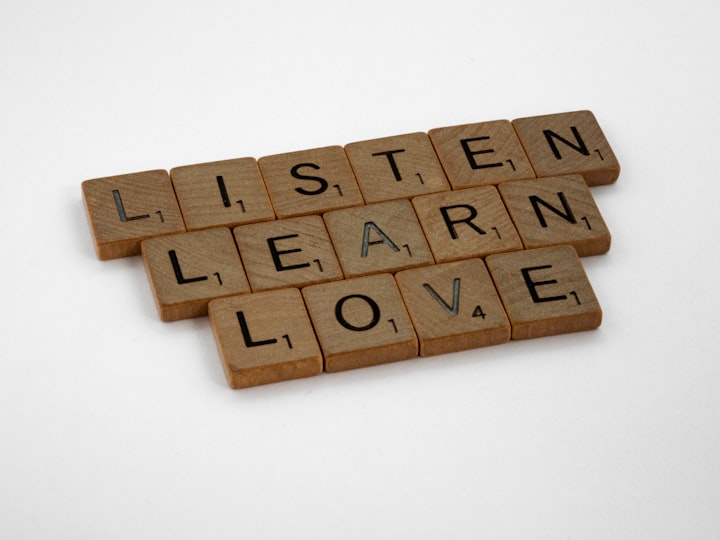There Is No Spokesperson for DeafBlindness
We need to speak for ourselves

Introduction
I’m Deaf and legally Blind, or DeafBlind as I label myself. Being DeafBlind puts me in a small subculture group inside a minority group.
There are about 28 Million people who are Deaf or Hard of Hearing and about 42,000 to 700,000 individuals with some combination of hearing loss and vision loss.
About DeafBlindness
Deafblindness does not mean totally deaf and totally blind AKA Helen Keller.
It varies so widely in the degree of hearing loss and vision loss that no two people are rarely the same. You can read more about DeafBlindness in my other article.
So, finding a common goal or “need” is often tricky.
Some individuals need braille access while others don’t need print accommodations. Some need Tactile Sign Language (TASL) which is “hands-on signing” while others don't sign. Some identify themselves closer to the Blind community while others relate more with Deaf Culture.
Misleading Representation
Because of the wide spectrum in Deafblindness and their various accessibility needs, I feel they cannot be represented fairly by one “spokesperson”.
It irks me when a fellow Deafblind person speaks up and demands “Deafblind people need….”, “The Deafblind community cannot...", and other similar statements.
Advocacy is great, I support and encourage it, but doing it this way can be misleading.
Rather than making a blanket statement for everyone on an issue, it should be left to each individual to represent themselves and let each person speak up when they need to. Besides, you are the only one who knows your accessibility needs, right?
A Common Theme
As I mentioned earlier, the DeafBlind community is a subculture inside a minority group. The issue with this is that we often feel ignored by that minority group - by both the Deaf community and the Blind community. People think that Deafblindness means Deaf + Blind, but it's actually Deaf x Blind. One disability impacts and compounds issues in the other and vice versa. Then there are the social views and beliefs to overcome.
Surveys have shown repeatedly that when questioning Blind people “What’s the worse Disability” they answer “Deafness” because they rely so much on their hearing to be independent. When this question is asked to Deaf people, they answer “Blindness” because they rely on their eyes for communication as well as independence.
Those who are Deafblind get “pushed away” and become more isolated because of these societal and cultural beliefs. So when there are advocacy issues, disability rights movements, laws, and similar happenings - the needs of the Deafblind are often ignored.
Well-Wishers
There are some people in the general public who feels the need to either invent things, advocate for us, or want to help us out - read that as rescue us. These people either need to satisfy their own guilt at being able-bodied, want to feel good about themselves, or want attention for their “samaritan” act.
Half the time these people with good intentions don’t even consult with the DeafBlind community for what they really need.
No.
Don’t assume that I even have an access issue. I know what I need and want. Don’t assume that there’s a “one size fits all” solution for me or any other Deafblind person you meet.
No.
I don’t need your “tactile-proprioceptive communication aid” invention - such a stupid idea anyway, I can type faster on my phone than tangle with this gadget.
No.
I don’t need your help, I’ve lost count of how many times I’ve been randomly grabbed, guided across the street or to a bench against my will, and then the stranger smiles and walks away happy. First off, if I got there by myself, I certainly get to where I need by myself. If I need help, I have my means of finding it, (with my phone's GPS for example).
No.
I refuse to be your inspiration! I am just a DeafBlind woman, wife, and mother, ASL teacher, and freelance writer.
I can advocate for myself, all I ask is to be treated like everyone else, be heard, and accepted for who I am as a person.
What Needs To Be Done Instead
The best thing to offer someone who is DeafBlind (or anyone with a disability), is autonomy. Ask them what they need, how you can help, and to listen.
Second, give support to DeafBlind agencies that provide training, accessibility equipment, and other support services for DeafBlind individuals. With more agency support and funding, they can advocate for more funds to provide even more services - such as Support Service Providers (also known as Intervenors, or Co-Navigators). These are trained individuals that are "eyes and ears" of the DeafBlind person. They guide the DeafBlind person and pass on visual and audio information - they do not make decisions or "do things" for them.
You can check out my other article on other ways to help us out.
About the Creator
Tracy Stine
Freelance Writer. ASL Teacher. Disability Advocate. Deafblind. Snarky.
Enjoyed the story? Support the Creator.
Subscribe for free to receive all their stories in your feed. You could also pledge your support or give them a one-off tip, letting them know you appreciate their work.






Comments
There are no comments for this story
Be the first to respond and start the conversation.